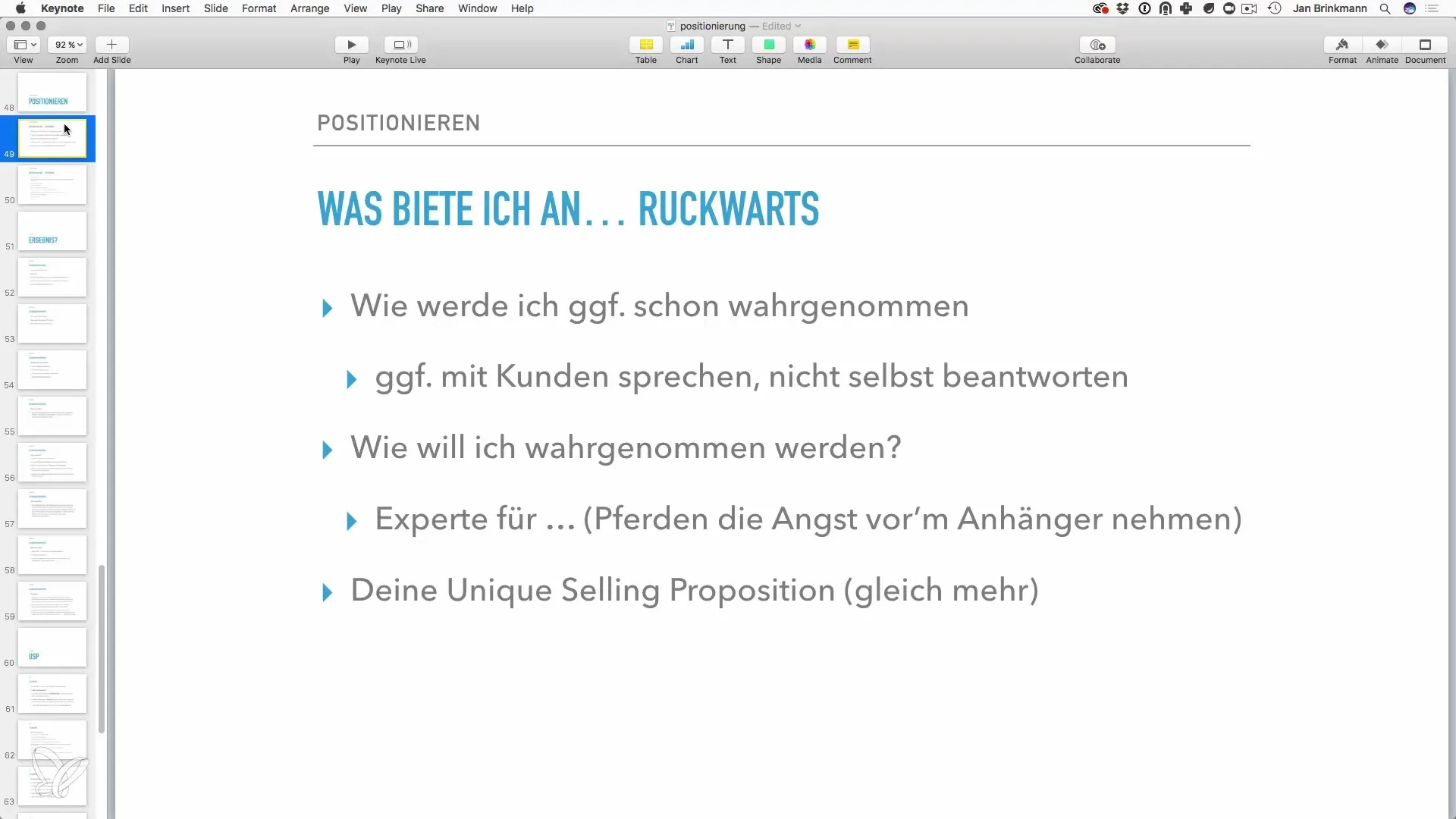The positioning of your freelancing business is a crucial step on the path to success. If you do not clearly define how you want to be perceived, valuable time will be lost. This guide will help you analyze your current positioning and develop a clear strategy for the future. We will look at the key steps to position yourself backward and to highlight your superpower as an expert.
Key Insights
- Determine your current position and the perception by others.
- Define how you want to be perceived in the future.
- Build your authority through targeted actions and content creation.
Step-by-Step Guide
Step 1: Determine Your Current Position
Before you can say how you want to be perceived in the future, you need to find out how you are currently perceived. Interact with others to get feedback. Contact people who are familiar with your field and use the feedback to determine your current position. Be sure to avoid friends or acquaintances who do not have a qualified opinion.

Step 2: Define Your Target Position
Once you have captured your current position, it's time to think about how you want to be perceived. Do you want to be seen as an expert in specific technologies or methods, for example, as a JavaScript or iOS expert? Clearly define the area in which you want to position yourself.

Step 3: Develop a Unique Selling Proposition (USP)
To stand out in the market, you need to develop your Unique Selling Proposition (USP). It should be clear and memorable. If, for example, you specialize in WordPress or iOS, think about how you can differentiate yourself from other developers. Your USP is the reason why clients should choose you.
Step 4: Build Authority
An important step in positioning is building your authority. Consider what means you can use to gain credibility and visibility. Start writing blog posts, offering free webinars, or sharing engaging content on social media. Think about how the content can help your target audience.
Step 5: Create a Website and Use SEO
A professional website is your foundation. Use WordPress to design an appealing website that presents both your services and relevant knowledge. Make sure your domain looks professional, and it is best to use a ".de" or ".com" domain. Implement basic SEO practices to increase your visibility in search engines.
Step 6: Offer Valuable Content
To reach your target audience, create valuable content. Write eBooks, offer downloads, or produce regular videos on YouTube. This content is not only useful but also helps build an email list that facilitates direct contact with potential customers.
Step 7: Consider Online Courses
Online courses can not only bring you additional income but also position you as an expert. You should consider creating online courses that reflect your expertise. Content such as tutorials or thematic webinars can also be offered to share your knowledge.
Step 8: Consistent Actions and Visibility
It is not enough to create content once. Consistency is crucial to securing visibility. Regularly publish new content and stay in touch with your target audience. This could include blog posts, videos, or podcasts. All of this helps further solidify your authority.
Step 9: Reflect on Measurable Successes
To recognize your progress, it is important to regularly reflect on what works well and what you might need to change. Analyze the reactions to your content and the inquiries you receive. This continuous evaluation helps you adjust and optimize your course.
Summary – Positioning for Your Freelancing Business: How to Set the Right Course
In the process of backward positioning, you have learned how important it is to substantiate your current position and develop a clear vision. You are ready to build your visibility and present your authority as an expert in your field.
Frequently Asked Questions
How do I capture my current position?Ask colleagues or people who know your business for honest feedback.
Why is a website important?A website serves as your online presence and is often the first point of contact for potential clients.
How can I build my authority?Create valuable content, share your knowledge through various media, and offer online courses.
What is a USP?The Unique Selling Proposition is the offer that sets you apart from others and shows why clients should choose you.
How often should I publish content?Regular content is essential; plan a publication strategy for blog posts, videos, or other formats.


